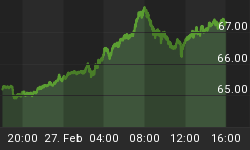Into the 29th year as independent states, Lithuania, Latvia and Estonia still have not managed to ride themselves of Russia in one key area: the transmitting of electricity.
Although the Baltic States have, in recent years, ended their electricity isolation by building new power cables with Finland, Poland and Sweden, for historical reasons, their electricity grid is still operated in a synchronous mode with the Russian and Belarusian system, commonly known as the BRELL ring.
Although the synchronization of the three Baltic States' electricity grids with the continental European network has always been a key political priority of the European Union, it’s been delayed numerous times. The sticking point has been a failure to reach a consensus among the Baltic States as to whether the local grid should be linked to continental Europe by one or two cables between Lithuania and Poland.
The Baltic countries are connected with Poland by the 500 MW LitPol Link and with Sweden by the 700 MW NordBalt cable. A 350MW link connects Finland and Estonia, which is the smallest of the Baltics.
Estonia has initially backed the idea of linking the region with continental Europe through a subsea cable via the Baltic Sea with Sweden. Then it vehemently supported the idea of laying out a second 500 MW cable from Lithuania to Poland.
However, Lithuania is increasingly nervous about Russia and Belarus disconnecting from the BRELL ring before 2020. That would leave the Baltics vulnerable to power disruptions, prompting Lithuania to push hard for its northern neighbor to accept its proposal. Related: Turkey’s Currency Crisis Sends Shockwaves Through Global Markets
Latvia and Poland were also in favor of synchronizing the grid with Europe via the existing power cable with Poland.
The countries were able to eventually iron out the differences and hammer out a deal on the synchronization last June, with the three and Poland signing an agreement in Brussels envisioning that it will take place via the single LitPol Link, complemented by a new undersea cable between them and a number of technical solutions.
The synchronization process is regarded as a technically complex process, requiring a comprehensive analysis of the electricity networks and technically feasible, secure and cost-effective solutions.
But no one’s breathing easily—just yet.
While the agreement has been signed, apprehensions remain because the completion of the synchronization cannot occur before 2025 due to the complexity.
Meanwhile, Russia is expected to operate its electricity network without a BRELL interconnection to Kaliningrad, its enclave sandwiched between Poland and Lithuania, by the end of this year. The commissioning of an LNG terminal at Kaliningrad will enable Russia to supply the region without the gas pipeline that runs through Lithuania. Recently, Russia has also significantly ramped up power generation in the exclave by building three power plants.
Related: Emerging Markets Hit Hard By Fed’s Trillion Dollar Experiment
With Russia and Belarus out of the BRELL system by 2020, the Baltics are increasingly prone to power disruptions and outages, experts say. However, the heads of the Baltic transmission system operators are hoping that this scenario is unlikely as the countries will have accumulated local power reserves.
In the past, Estonia, Latvia and Lithuania constituted an ‘energy island’. Their electricity networks were not connected to the systems of any other EU Member States after joining the bloc in 2004.
Other EU members from central and eastern Europe, including Bulgaria, the Czech Republic, Hungary, Poland, Romania and Slovakia, synchronized their systems with the continental European network between 1995 and 2004.
By Linas Jegelevicius for Safehaven.com
More Top Reads From Safehaven.com
















